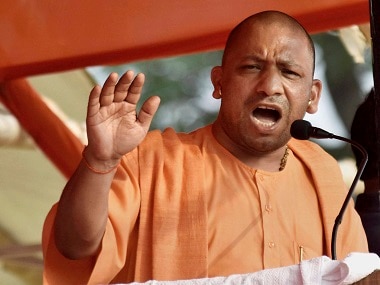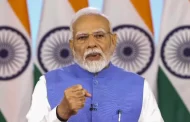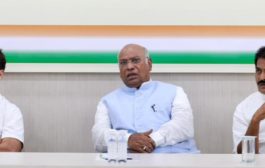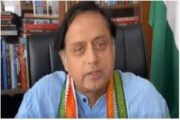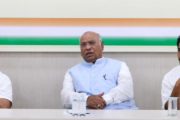Vote-bank politics or not, Kamal Haasan’s ‘Hindu terrorist’ remark shows politicians are incapable of severing terror-religion link
“I am not saying this because this is a Muslim-dominated area, but I am saying this before a statue of Mahatma Gandhi. The first terrorist of Independent India was a Hindu. His name was Nathuram Godse. It (terrorism) started there,” the Makkal Needhi Maiyam (MNM) founder said at a campaign in Aravakurichi in Tamil Nadu.

“Good Indians desire for equality and want the three colours in the tricolour to remain intact,” Haasan added, referring to the saffron and green in India’s National Flag, colours that have come to denote Hindutva and Islamic ideologies. “I am a good Indian and I will proudly proclaim that.”
What would have really made Haasan a “good Indian” was refraining from adding a religious link to terrorism. He would have done better to proclaim nothing, instead of stoking a sentiment with a statement that was undoubtedly bound to be perceived as communal.
Invoking religion for political gain is dangerous and polarising in itself. Mixing it with terrorism is even more so. Linking terrorism with belief in a particular faith gives perpetrators a false sense of sacrifice, making them believe that their actions are for a cause and not what they really are — plain and vile acts of violence.
When put in words, it’s a simple, straightforward thought that would appear easy to understand for those with no particularly strong opinion supporting either side of the argument. But for politicians, it appears hard to interpret.
“This poisonous plant should be nipped in the bud” was BJP leader H Raja’s reaction to Haasan’s comments. He also claimed that that the MNM chief was defaming Hindus to appeal to the Muslim population for votes.
Tamil Nadu BJP president Tamilisai Soundararajan pointed out that Haasan “talks of taking forward a new kind of politics”, but was “indulging in the old, mischievous, poisonous and divisive vote-bank politics”.
Vote-bank politics or not, Haasan’s comments do make one thing evident — politicians are incapable of severing the terrorism-religion link in their rhetoric, however innocent their speech may seem. With an eye on their greater goal, they appear blind to the seemingly logical reasoning that the acts of a few should not be used to label a larger section of believers of a particular faith.
In the recent past, the political discourse in India has been dotted with references to “Hindu terror“, with even top leaders cashing in on the Hindu-Muslim divide and fuelling a divisive sentiment. One would expect better from a leader of the stature of the prime minister, but when it’s the most powerful seat in Delhi at stake, it seems all bets are off.
Linking terrorism to any particular religion sends the wrong message that we must point fingers at those folding their hands or bowing to pray, not at those heading to shops to buy guns and material to build bombs. Politicians, people in a position to influence the public’s thinking, must hold perpetrators responsible, not the religion. But rather than doing this, they prioritise their vested interests and give terrorism a religious colour to appeal to what they assume is the rival faith.
Today, politicians propagate the notion that “radical” ideas come from Islamic or Hindu ideologies, that these are the root causes of turning a youth into a terrorist, or jihadist, or suicide bomber, or any of the myriad other terms used to describe them. It’s not the Quran that calls for radicalisation or terrorist acts, or the Gita that calls for attacks on dissenters — it’s people themselves, how they perceive situations and react to them, that leads to terrorism.
Like the easily-swayed mob in William Shakespeare’s Julius Caesar, politicians are buoyed by reactions they get from the crowds they address, regardless of their understanding of the larger repercussions of incendiary statements. They have their sights set on ultimate political gains, and labeling an entire religion as one of terrorists for the acts of a few couldn’t matter less to them.
Or so we can assume.
source: Firstpost.com


